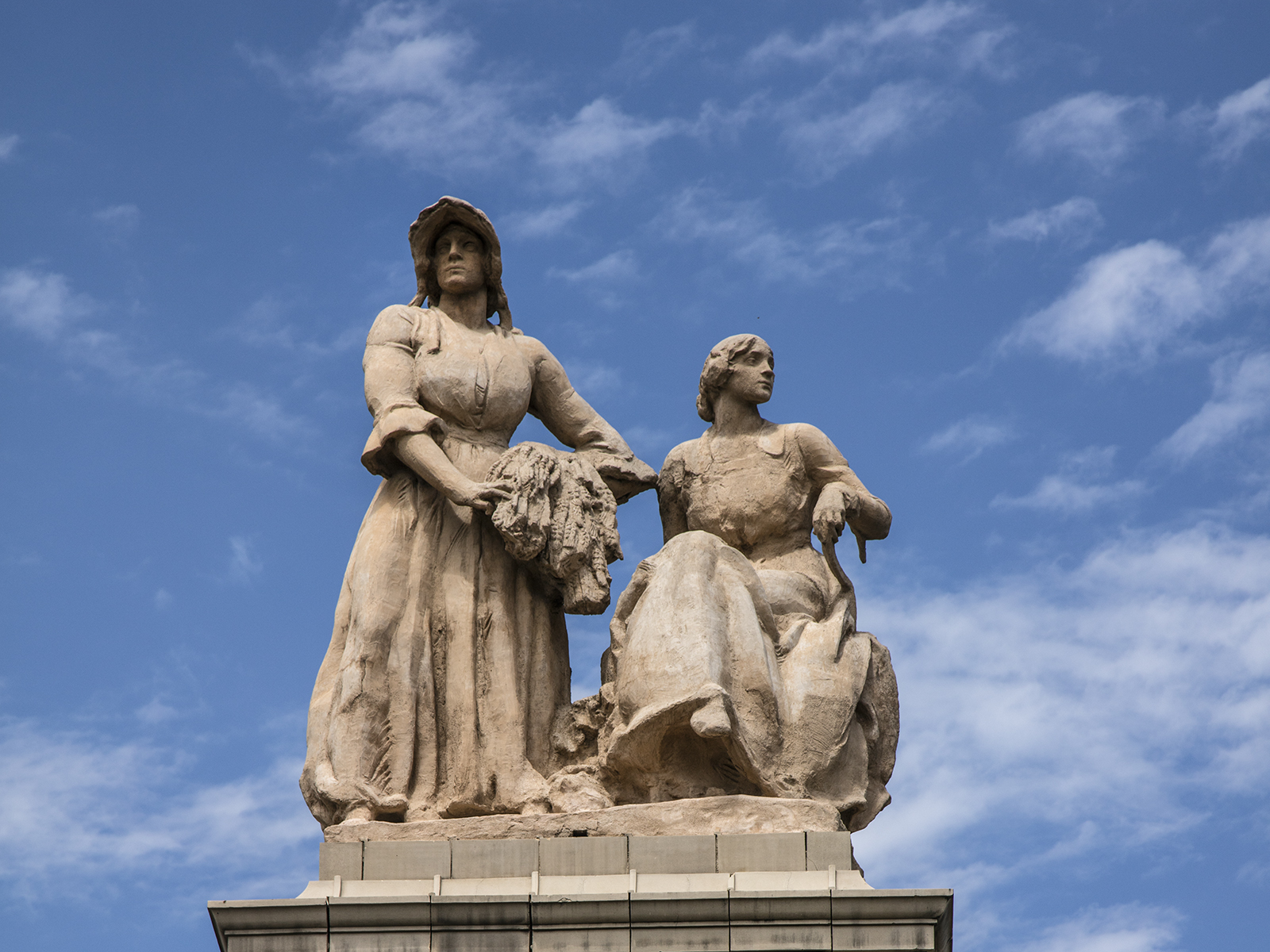The Local newsletter is your free, daily guide to life in Colorado. For locals, by locals.
Strong women. That’s the heritage fourth-generation Coloradan Carrie MaKenna proudly boasts—from her Irish immigrant great-grandmother, who took the reins of her family’s finances and owned several homes, a grocery store, and an auto repair shop in Denver’s historic Baker neighborhood, to MaKenna’s mother Ruth Greiner, who used money she’d inherited to co-found the American Zang Education Foundation (now the AZ Foundation) in the 1990s with her husband Rod Greiner.
“The strength of the women in my family has been a driving force in my life,” MaKenna says. In 2017, when she inherited her parents’ foundation, MaKenna decided to shift its mission to honor women like her mother and great-grandmother. “I was searching for an idea that would include the arts [and] that would support women somehow.”

Over the last several years, reporting by Smithsonian and the Washington Post has called attention to the fact that historic women lack representation in the form of public monuments. Both publications referenced estimates suggesting that of the 5,000-plus public outdoor sculptures of individual people in the U.S., less than 8 percent represent women.
MaKenna wasn’t aware of this reality until the national conversation in 2017 exploded around confederate monuments in the South and what they could be replaced with if they were torn down. As she tuned in, she started learning about the lack of statues honoring women, especially historical women. Many statues feature women who are symbolic or allegorical (think: the Statue of Liberty) or generic (the Sullivan Gateway on East Colfax features two women representing agriculture), but it’s harder to find statues of particular women that honor and name both them and their achievements.

That was all MaKenna needed to know in order to define her foundation’s new mission: “to fund, create, and place commemorative public art about the achievements of Colorado women.”
Right now, it’s unclear how many monuments or public art pieces in the state honor women. Denver Arts & Venues keeps a list of Denver’s public art collection, but the list only includes statues owned by the City and County of Denver. According to Erica Duvic, preservation planner in the Office of Archaeology and Historic Preservation at History Colorado, her office doesn’t keep a comprehensive list of Colorado monuments because “there are simply too many entities that place monuments to keep track of them all.” A cursory survey of Smithsonian’s inventory of Denver’s outdoor sculptures found 31 pieces featuring people, seven of which included women, only one of whom was a specific woman—but the list is woefully incomplete.
Because of this, a key part of MaKenna’s initiative is to form an inventory survey team to document what public artwork commemorating women already exists in Colorado.
MaKenna is also looking for volunteers for placement and selection teams, to respectively identify locations to host the artwork and choose artists to create the pieces. The selection team will also play a role in selecting which women to honor. MaKenna plans to draw from the Colorado Women’s Hall of Fame’s list of 162 inductees, starting with more well-known names.
An investment team will focus on fundraising for projects once they’ve been identified, and a membership team will work to grow the foundation’s membership and organize events to support the mission.
“I want to imbue these pieces of artwork with information about these people,” MaKenna says. She wants anyone who happens upon a piece to be able to learn who the woman was and why she’s being honored, so they can walk away both educated and inspired. “There’s a hunger to know about women’s achievements,” she says. “I don’t know that people even recognize that they’re missing it.”
Get involved: Visit Carrie MaKenna’s website to learn more, or contact her via email at anamcara@ecentral.com or phone at 720-933-3813.








